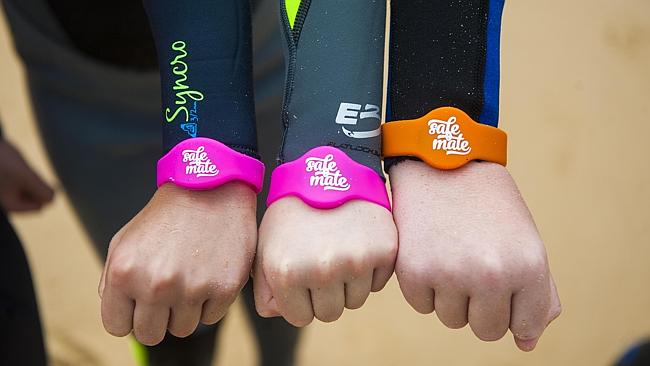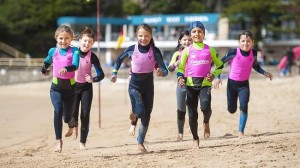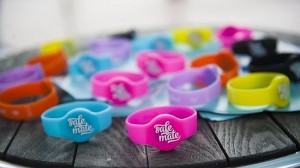Little Nippers Give Digital Wristbands a Try
Posted by The Unitix Team on 24th September, 2014

Little Nippers Give Digital Wristbands a Try
Using RFID technology, the new wristbands allow lifesavers to read a wearers medical information. With a swift wave of an iPhone or Android device, users can communicate with the wristband to access vital life-saving information.
Going by the name of “Safe Mate”, designer Ewan Le Bourhis says he was inspired when he fell off his surf board and injured himself. With no one around to help him, Erwan contemplated how he could improve safety for people in the surf.
An added benefit of using RFID technology is that it does not require any batteries to operate and never needs to be charged. Instead it uses RF waves provided by the scanning device to power itself.
Data as varied as the wearer’s allergies, next of kin contact, and existing medical conditions can be stored. In an emergency situation, this information could be invaluable according to Mr. Bourhis.
Two different phone applications have been made available. A professional app designed for medical first respondents and a general availability app for everyone else. Users of the general availability application will only be able to access contact details and name of the wearer.

Mr. Bourhis would like to see his new wristband deployed in beaches throughout the beaches of New South Wales and Australia. Trialling the new tech are 800 Little Nippers of the Manly SLSC.
It was agreed by Marc Manion, the GM of the Manly SLSC, that the wristbands will be helpful in helping identify and treating lost children, tourists and non-English speaking individuals. Mr Manion went further to describe the ease of access to such vital information as very valuable, and would like to see the wristbands available at beach side kiosks for swimmers.
Access to a lost child’s next of kin contact details, for example, would eliminate the need to broadcast the situation over beach loudspeakers. Instead, lifesavers would be able to directly contact the child’s parents. Details even as simple as name, nationality and contact number would be a big help. Allergy sufferers would also benefit from having their conditions stored in a database on the wristband.
This sort of technology could prove to be the next breakthrough in first contact medical profiling for first respondent medical teams.

Images from The Daily Telegraph.